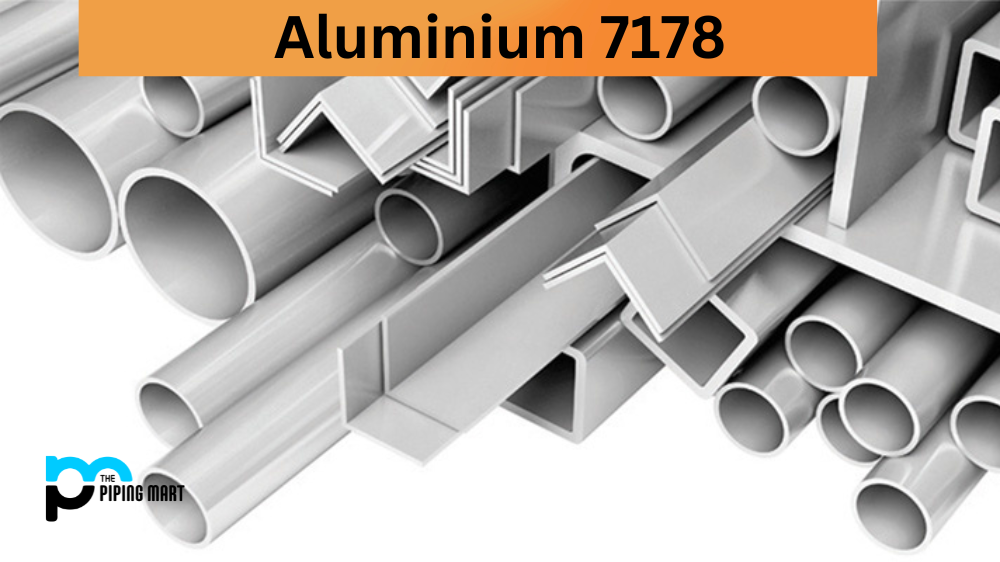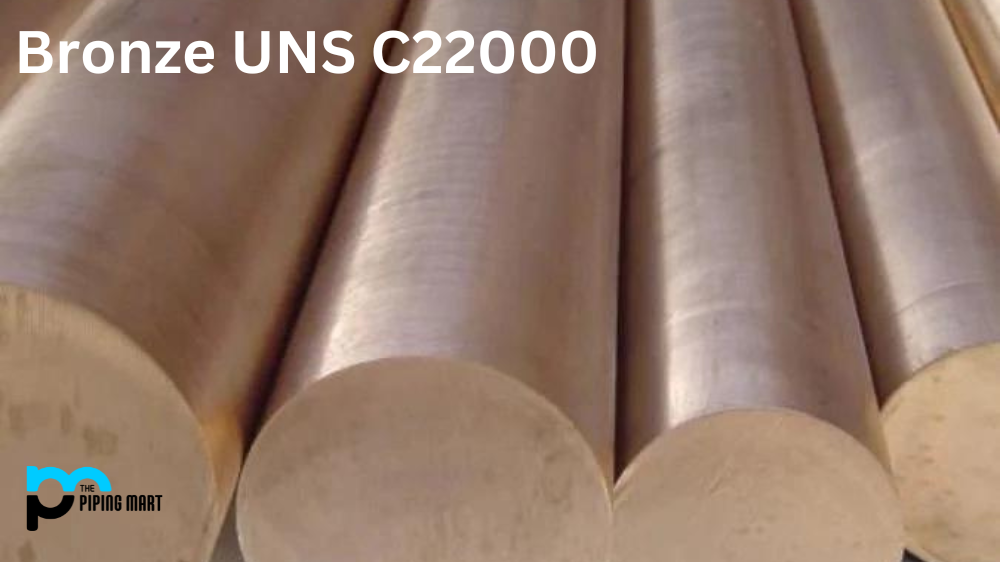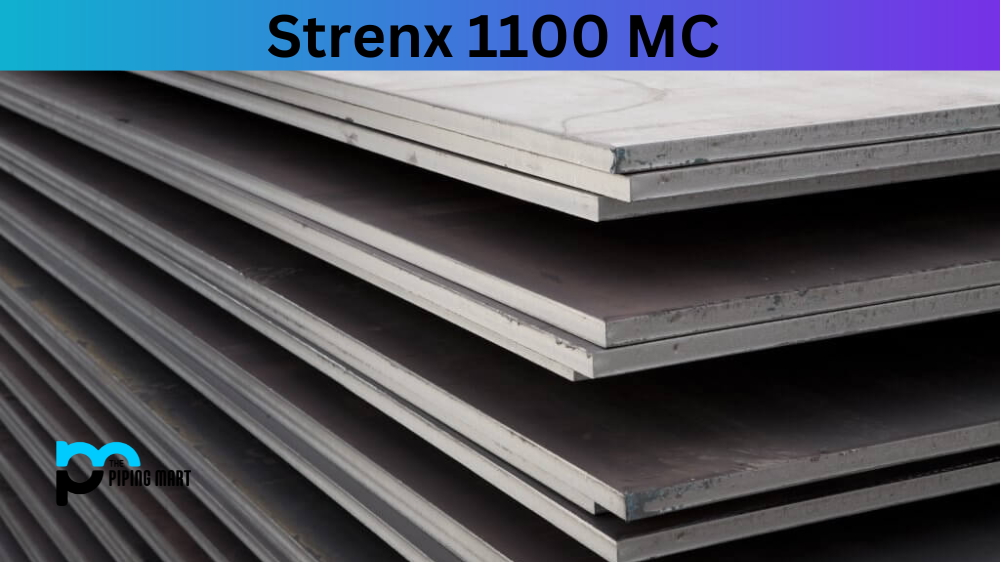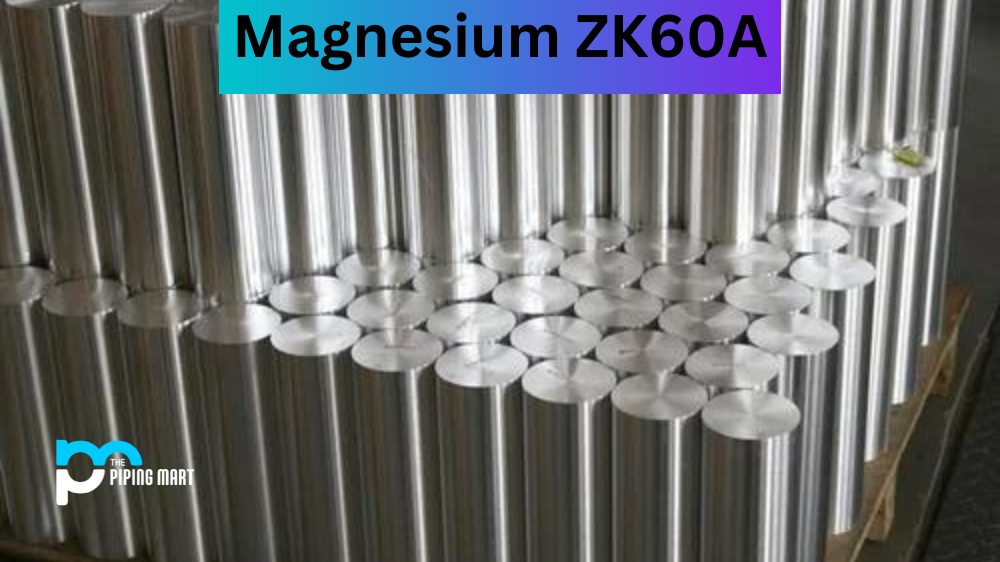Aluminium 7178 is a widely used alloy in the aerospace, automotive, and construction industries due to its unique combination of strength, corrosion resistance, and heat resistance. In this blog post, we will explore the various uses of UNS A97178 as well as its properties, such as corrosion resistance, heat resistance, heat treatment, machining, and welding. Read on to learn more!
7178 Alloy Composition
| Element | Content (%) |
|---|---|
| Aluminium / Aluminum, Al | 88.1 |
| Zinc, Zn | 6.8 |
| Magnesium, Mg | 2.7 |
| Copper, Cu | 2.0 |
| Chromium, Cr | 0.26 |
7178 Alloy Physical Properties
| Properties | Metric | Imperial |
|---|---|---|
| Density | 2.82 g/cm3 | 0.1018 lb/in3 |
| Melting point | 482°C | 900°F |
7178 Alloy Mechanical Properties
| Properties | Metric | Imperial |
|---|---|---|
| Elastic modulus | 70-80 GPa | 10152-11603 ksi |
| Poisson’s ratio | 0.33 | 0.33 |
7178 Alloy Thermal Properties
| Properties | Conditions | ||
|---|---|---|---|
| T (ºC) | Treatment | ||
| Thermal expansion | 23.4 (10-6/ºC) | 20-100 | – |
7178 Alloy Equivalents
- ASTM B209
- ASTM B221
- ASTM B241
- ASTM B316
- QQ A-200/13
- QQ A-200/14
- QQ A-250/14
- QQ A-250/21
- QQ A-250/28
- QQ A-430
- SAE J454
7178 Alloy Uses
Aluminium 7178 is used extensively across multiple industries. The aerospace industry relies heavily on this alloy due to its high strength-to-weight ratio and excellent fatigue properties. It is also commonly used in the automotive industry for structural components such as frames and body panels. Finally, it is often seen in construction applications due to its corrosion resistance qualities and ability to be machined easily.
Corrosion Resistance
One of the most impressive features of aluminum 7178 is its corrosion resistance. This allows it to be used in a variety of environments without fear of rust or other forms of deterioration. Furthermore, its strong surface finish means that it can be painted or coated for additional protection from environmental elements.
Heat Resistance
Aluminium 7178 provides excellent resistance to heat, making it a suitable choice for high-temperature applications. It is much more resistant to thermal creep, fatigue and sensitivity than other types of aluminium. With its low expansion rate and good thermal conductivity, this alloy holds the shape of a component even under stress caused by rapidly changing temperatures and high thermal stresses. Aluminium 7178 also resists oxidation and corrosion, meaning it can be used in both indoor and outdoor settings without sacrificing reliability. In addition, its wide range of mechanical strength makes it ideal for many engineering projects as well as aerospace applications. All in all, aluminum 7178 is an efficient and reliable choice for anyone needing an aluminum alloy that stands up to the test of extreme heat.
Machining
Machining aluminium 7178 requires precision and expertise to provide quality results for any application. This alloy is an in-demand material for its properties of being lightweight, corrosion-resistant and malleable. Working with aluminium 7178 when machining components offers considerable benefits since it can be used with a variety of techniques like turning, boring, drilling, and milling to shape it into complex designs. Additionally, its soft nature allows cutting tools to generate high-quality surfaces on the workpiece, which improves the overall performance while increasing speed and reducing production costs. Experienced professionals understand how to operate machinery efficiently to get the best out of this material while maintaining tight control over the waste generation and higher productivity.
Welding
Welding aluminium 7178 is one of today’s most difficult but rewarding welding processes. It is a form of fusion welding that combines multiple pieces of metal with incredible precision and strength. The welds created through this process are extremely strong and reliable – perfect for aerospace and automotive applications. The process requires an experienced operator and special techniques to ensure the highest quality outcomes, with different filler rods, gases, and heat settings required depending on thickness and alloy specifications. Although it takes skill and practice to become an expert at welding aluminium 7178, those who do are able to create works of art out of raw metals.
Conclusion:
There are many benefits associated with using aluminium 7178 for your next project – from its corrosion resistance and heat tolerance to machinability and welding capabilities! Its versatility makes it suitable for use across multiple industries, including aerospace, automotive, construction, and more – so if you’re looking for a reliable metal alloy, then look no further than aluminium grade 71 78!

A passionate metal industry expert and blogger. With over 5 years of experience in the field, Palak brings a wealth of knowledge and insight to her writing. Whether discussing the latest trends in the metal industry or sharing tips, she is dedicated to helping others succeed in the metal industry.




